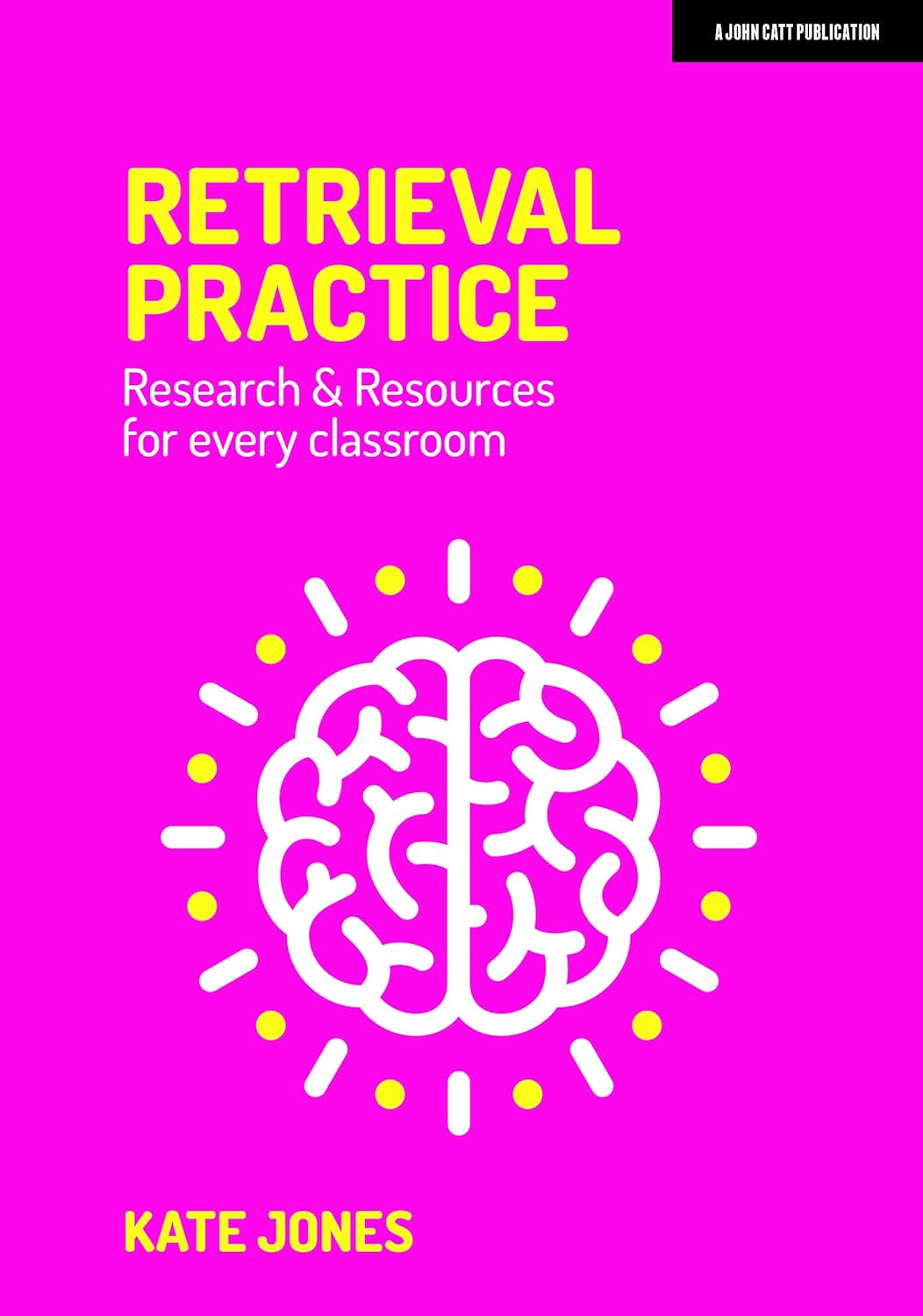About this deal
Kate Jones has written a practical book called Love To Teach: Research and Resources for Every Classroom, published by John Catt.
In my first book Love To Teach , the first chapter was entitled “ The best way to start a lesson … ” and I did write about using retrieval practice as part of a classroom routine to begin lessons. I stand by this as I do think it is generally the best way to start a lesson but I didn’t state that every lesson should start that way. I also added that “Although, I will be recommending starting lessons with regular retrieval, research does not explicitly state this is the most appropriate time in the lesson to carry out retrieval practice. It is an effective strategy that can be used at any point during a lesson”. Explain that the students will be given time to look at the first slide and store the information in their minds, without writing anything down. In this episode of The Cult of Pedagogy podcast, Jennifer Gonzalez speaks to Pooja Agarwal about what retrieval practice is and how you can start incorporating it into your classroom right away. Within that lesson, there will be some key facts that we don’t want the children to forget. So the very first thing that we do at the start of the next lesson is ask all children to answer the question, “According to myth, who founded Rome?” I often begin planning a lesson by asking myself, “What are the five things that I want all children to remember by the end of this lesson?” These then become the targets for quiz questions in the following lesson.
Top tips for using flash cards
We’ve also got lots more advice for teachers about the benefits of retrieval practice and how to implement this effective learning strategy. Read Kate Jones’ book Look at your scheme of learning for a half term. Decide what the key takeaway concepts or vocabulary are in that time. Head of department, classroom teacher and award-winning educational speaker and author Kate Jones breaks down arguably the most popular area of cognitive psychology in education: Retrieval Practice. The book covers a wealth of academic research as well as innovative ways to apply it in the classroom. Why read this book? A knowledge/fact test can work well at clearly identifying areas of strength and areas of weakness or development for students. This knowledge, for both the teacher and student, about what students can and can’t recall is very powerful and useful. However, knowledge or fact tests repeated continuously can become boring, mundane and that then supports the idea that retrieval practice is simply about regurgitating isolated facts when that is also another myth – not true.
As teachers across the UK become more and more evidence-informed, we’re learning to ditch revision games, posters, highlighting, re-reading and mnemonics. This is great - been looking at all your ideas for retrieval practice and incorporating them into my Religious Studies lessons. This concept can be applied to the classroom with a twist, focusing on daily review of five a day to promote healthy retrieval. It could simply be five quiz questions to start the lesson.In fact a paradigm shift is occurring around revision itself. We’ve moving away from a system where we teach a sequence of lessons, have a revision lesson and then a test. There are, however, aspects that you might not be aware of. For example, Hungarian researchers tested whether or not retrieval practice could help mitigate the debilitating cognitive effects of being in a high stress environment. The correct answer, a wonderful piece of cultural knowledge and a useful window into the success and ambition of the Macedonian King, gets lost somewhere in laughter. The kids just remember Alexander eating a Nando’s.
Teacher and author Kate Jones explains how to use her retrieval practice challenge grid at the start of your lesson... First, always begin a lesson with retrieval practice – a short quiz, including five, multiple-choice questions of previously learnt material. Try throwing in some questions where the answer is already correct (ie where something is the same in both dimensions) and see if they notice! Memorise this… We are all familiar with the ‘five a day’ message as it applies to including portions of fruit and/or vegetables as part of our daily routine to stay healthy.But what if you did put in that effort, and it worked out? What if you persevered through that short-term pain and feeling of frustration? Imagine you really committed yourself to retrieval practice, and were duly rewarded in a test. If your pupils struggle to recall yesterday’s lesson, prompt them to retrieve information from memory by embedding regular quizzes into your curriculum design, with these ideas from Jon Hutchinson, director of training and development at the Reach Foundation… Let’s take an example. In the first lesson of our unit on Roman Britain, the class learn about how Romulus killed his brother to found the city. There are more top tips as to how to use flashcards in the video below, that you can share with your classes. These changes are possible because of how well-researched retrieval practice is. Cognitive scientists have spent decades investigating its use as a memory technique. Though nothing in science is ever beyond question, the positive results across a vast number of studies certainly seem to suggest it’s an effective method. New discoveries
 Great Deal
Great Deal 